Джон Фаулз - The Tree
Здесь есть возможность читать онлайн «Джон Фаулз - The Tree» весь текст электронной книги совершенно бесплатно (целиком полную версию без сокращений). В некоторых случаях можно слушать аудио, скачать через торрент в формате fb2 и присутствует краткое содержание. Жанр: Современная проза, на английском языке. Описание произведения, (предисловие) а так же отзывы посетителей доступны на портале библиотеки ЛибКат.
- Название:The Tree
- Автор:
- Жанр:
- Год:неизвестен
- ISBN:нет данных
- Рейтинг книги:5 / 5. Голосов: 1
-
Избранное:Добавить в избранное
- Отзывы:
-
Ваша оценка:
- 100
- 1
- 2
- 3
- 4
- 5
The Tree: краткое содержание, описание и аннотация
Предлагаем к чтению аннотацию, описание, краткое содержание или предисловие (зависит от того, что написал сам автор книги «The Tree»). Если вы не нашли необходимую информацию о книге — напишите в комментариях, мы постараемся отыскать её.
The Tree — читать онлайн бесплатно полную книгу (весь текст) целиком
Ниже представлен текст книги, разбитый по страницам. Система сохранения места последней прочитанной страницы, позволяет с удобством читать онлайн бесплатно книгу «The Tree», без необходимости каждый раз заново искать на чём Вы остановились. Поставьте закладку, и сможете в любой момент перейти на страницу, на которой закончили чтение.
Интервал:
Закладка:
Even the great seventeenth-century landscapists, such as Ruysdael, do not really get close to natural reality, if one compares their portrayal of it with that of contemporary towns and other human artefacts, it was still mere background to be composed and gardened in accordance with their own notion of the picturesque — far less treescapes, in a painter like Hobbema, than townscapes composed with trees instead of houses. Nature by then was not so much to be feared and anathematized as slighted and mistrusted: to be improved, made tasteful. In many ways painters did not begin to see nature whole until the camera saw it for them; and already, in this context, had begun to supersede them.
Art has no special obligation to be realistic and naturalistic, indeed any obligation at all except to say what the artist wants or chooses to say. Yet this long-lasting inability to convey the whole as truthfully as the isolated part — this failure to match the human eye (or the camera) in the ensemble, despite having equalled it in detail at least four centuries (Pisanello died in 1455) before the camera’s invention — is symptomatic of a long and damaging doubt in man.
There are very understandable practical reasons why well into the sixteenth century European man (at home as well as on his voyages of exploration) should regard untamed nature very
much as he regarded the sea — as a vast and essentially hostile desert, a kind of necessary evil. Commerce, personal profit, government, social stability and many other things required that the then largely arboreal wasteland between towns and cities should be crossed; but there was no pleasure in it, beyond safe arrival the other end. . except perhaps that of hunting; but even that was the sport of a few, and done armed, in safe parties.
As in so much else, the Robin Hood myth, or that part of it that suggests life under the greenwood tree can be pleasant, runs profoundly counter to the general feeling and spirit of the Middle Ages, and even in the Robin Hood corpus, the happy greenwood side is much more an element of the Elizabethan and later ballads and accounts than the earlier ones. It is probably A no coincidence that the end of the first great wave of common-land enclosure and the rise of the Puritan ethos both took place in Elizabethan times. The first hints of a rebellious and irreligious swing from nature-fearing to nature-liking took place then. The pastoral settings and themes of some of Shakespeare’s plays — the depiction of not totally unrewarding exiles from the safe garden of civilization in A Midsummer Nights Dream, As You Like It, The Tempest and the rest — are not examples of the foresight of genius, but skilful pandering to a growing vogue. Yet little of this is reflected in actual seventeenth-century ways of life — and least of all in its gardens, which remained in general quite as formal as medieval ones. Nature still remained a potential dissolver of decency, a notion that the endless chain of new discoveries about the ways of more primitive man — the nearer nature, the nearer Caliban — did nothing to dispel. It remained essentially an immense green cloak for Satan; for the commission of crime and sin, for doubters of religious and public order, above all for impious doubters of man himself, as God's chosen steward and bailiff over the rest of creation.
We may think, now that the steward has so comprehensively reversed the old ratio of nature to civilization, that such superstitious hatreds and fears of the wild are dead — and especially their indispensable corollary, the idea of all virtue and beauty lying inside the confines of the hortus conclusus. But I see little sign of it, and certainly not in the way ordinary householders in Europe and America still run their own gardens — or in the considerable industry that supplies their needs in terms of pesticides and herbicides. The one place — and ominously close to us, both» physically and psychologically — in which wild nature remains unwelcome and detested is the private garden; and this is despite its growing popularity in terms of books and television screen, and all the endeavours of the conservationists.
I remember a strange event, in that suburban road in Essex where I was born. One of the elderly residents went slightly mad on the death of his wife; he drew his curtains and turned his back on the outside world. There was at first considerable sympathy for the poor man, until it was realized that the outside world included his own garden. No grass was cut, no beds weeded, no trees pruned; the place ran riot with dandelion, ragwort, nettles, fireweed, heaven knows what else. Such a flagrant invitation to the abominable fifth column deeply shocked my father and his neighbours; and all their sympathy promptly shifted to this Quisling's immediate neighbours, now under constant paratroop invasion from the seeded composites and willow-herbs. I passed this derelict horror one cold winter day and to my joy saw one of Britain’s rarest and most beautiful birds, a waxwing, happily feeding among a massive crop of berries on a tree there. But that was only a tiny poetic revenge.
Most of us remain firmly medieval, self-distancing and distanced from what we can neither own nor fully control, and from what we cannot see or understand.]ust as the vast bulk of science fiction has decreed that anything that visits us from outer space must (in defiance of all probability) come with evil intent, so do we still assess most of nature, or at least where it comes close to us. Some deep refusal to accept the implications of Voltaire’s famous sarcasm about the wickedness of animals in defending themselves when attacked still haunts the common unconscious, what is not clearly for mankind must be against it. We cannot swallow the sheer indifference, the ultrahumanity, of so much of nature. We may deplore the deforestation of the Amazon basin, the pollution of our seas and rivers, the extermination of the whale family and countless other crimes committed against the wild by contemporary man. But like nature itself, most of these things take place outside our direct knowledge and experience, and we seem incapable of supposing that responsibility for them (or lack of responsibility) might begin much closer to home, and in our own species' frightened past quite as much as in its helpless present — above all in our eternal association of ignorance with fear. I do not know how else one accounts for the popularity of such recent and loathsome manifestations of a purely medieval mentality as the film Jaws, and all its unhappy spawn.
The threat to us in the coming millennium lies not in nature seen as rogue shark, but in our growing emotional and intellectual detachment from it — and I do not think the remedy lies solely in the success or failure of the conservation movement. It lies as much in our admitting the debit side of the scientific revolution, and especially the changes it has effected in our modes of perceiving and of experiencing the world as individuals.
Science is centrally, almost metaphysically, obsessed by general truths, by classifications that stop at the species, by functional laws whose worth is valued by their universality; by statistics, where a Bach or a Leonardo is no more than a quotum, a hole in a computer tape. The scientist has even to generalize himself, to subtract all personal feeling from the conduct of experiment and observation and from the enunciation of its results. He may study individuals, but only to help establish more widely applicable laws and facts. Science has little time for minor exceptions. But all nature, like all humanity, is made of minor exceptions, of entities that in some way, however scientifically disregardable, do not conform to the general rule. A belief in this kind of exception is as central to art as a belief in the utility of generalization is to science; indeed one might almost call art that branch of science which present science is prevented, by its own constricting tenets and philosophies (that old hortus conclusus again), from reaching.
Читать дальшеИнтервал:
Закладка:
Похожие книги на «The Tree»
Представляем Вашему вниманию похожие книги на «The Tree» списком для выбора. Мы отобрали схожую по названию и смыслу литературу в надежде предоставить читателям больше вариантов отыскать новые, интересные, ещё непрочитанные произведения.
Обсуждение, отзывы о книге «The Tree» и просто собственные мнения читателей. Оставьте ваши комментарии, напишите, что Вы думаете о произведении, его смысле или главных героях. Укажите что конкретно понравилось, а что нет, и почему Вы так считаете.

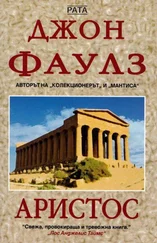
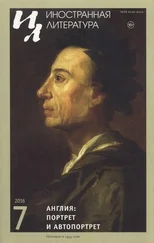
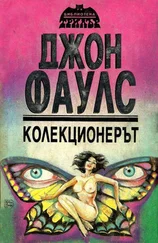
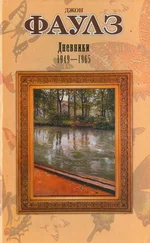

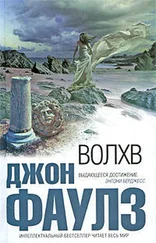

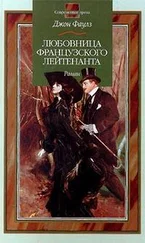
![Джон Фаулз - Вылазка в действительность [антология]](/books/431648/dzhon-faulz-vylazka-v-dejstvitelnost-antologiya-thumb.webp)
![Джон Фаулз - Мантисса [litres]](/books/438194/dzhon-faulz-mantissa-litres-thumb.webp)